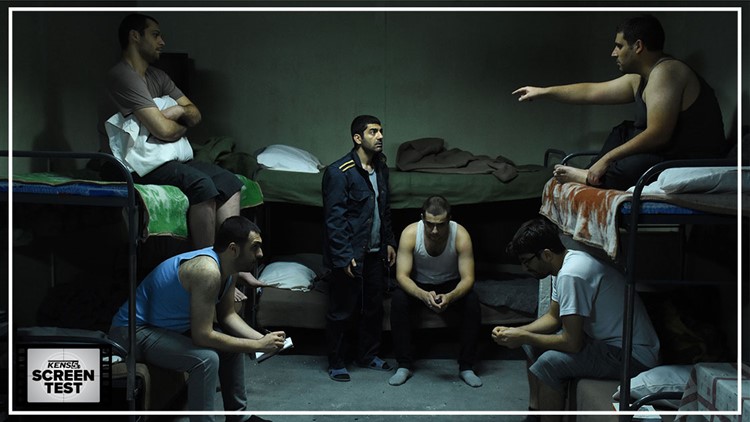Our eyes may witness little bloodshed or violence across its four stories, but the tendrils of psychological damage nonetheless reach far and wide in Iranian filmmaker Mohammad Rasoulof’s anthology project “There Is No Evil.” We love to say, perhaps too comfortably, that a director is “daring” for what they convey on the screen, but Rasoulof is an artist who more robustly meets the word’s meaning—his stories have made him a target of the Iranian government, which has banned him, confiscated his passport and sentenced him to jail over the course of his career.
Even if “There Is No Evil” – which won top honors at the Berlin International Film Festival last year – were one’s introduction to Rasoulof, it would be easy to see why his home country was going to such lengths to suppress his autonomy. After all, the same is being done to the Iranians at the center of this quartet of powerful character studies, which, when taken together, form an opportunity to kaleidoscopically observe the fallout of engaging in or evading the act of carrying out military capital punishment. The variety of physical environments the stories unfold in – a noisy city, a cramped military prison, a lush green forest and the most wide-open of serene rural plains – feel like clear acknowledgement from Rasoulof about how ubiquitous that fallout is.
There’s ostensibly a range applied, too, to the immediacy of independent decision-making when it comes time to fulfill the life-ending duties those we follow are ordered to carry out, but one of the most striking revelations of “There Is No Evil” is how inescapability manifests in different forms and conflicts, from quiet routine to sweat-streaked desperation. It’s all the more impressive that Rasoulof finds different methods by which to apply his taut narrative efficiency and riveting formality. The very first story covers a day in the life of an Iranian family, dominated by the routine and familiar, which only makes the bluntness of its conclusion more terrifying to witness. The second anecdote, however, unfolds like a stage play; it’s mostly set in a single location, playing out nearly in real time and constructed more around dialogue than pure mood, though a foundational coldness can still be felt.
The project as a whole is smartly structured, the stories escalating in their moral complexity and ever-deepening in the potency of how our characters react to being in close proximity to inhumane practices. And they function as potently individually as they do as a catalogue. By the end of the final tale, a gut-wrenching short film whose tremors of suspense tease something more dastardly but much less harrowing than what is ultimately revealed, you may find your sympathies deepening for the protagonist from the first—that’s as much a result of smart writing as it is Rasoulof’s personal investment in the subject matter.
In watching “There Is No Evil,” we are essentially watching four thrillers with different emotional tempos that nonetheless are attuned to the same grim key of freedom made limited by the contradictions which shape a bureaucracy, of fate decided by a government’s cruel policies. There’s obviously something deeply dehumanizing and upsetting about how some characters refer to their delivery of the death penalty as simply “pulling away the stool,” but, through Rasoulof’s eye, confrontation – and the willingness to confront – is anything but one-dimensional. It’s something for which the consequences last a lifetime.
"There Is No Evil" is not rated. It's available now via virtual cinemas from Kino Lorber.
Starring: Mohammad Seddighimehr, Ehsan Mirhosseini, Zhila Shahi, Baran Rasoulof
Directed by Mohammad Rasoulof
2021
MORE REVIEWS:
- ‘The Killing of Two Lovers’ Review: One of the most bruising relationship dramas since 'Blue Valentine'
- ‘The Woman in the Window’ Review: Delayed Netflix thriller struggles to conjure intrigue worthy of its Hitchcockian flourishes
- 'Wrath of Man' Review: Guy Ritchie underestimates his own star and story in needlessly messy crime thriller
- ‘Undergods’ Review: An ill-shapen diorama about the ills of capitalism
- ‘The Paper Tigers’ Review: Martial arts flick struggles to balance heart and humor amid flecks of personality
- ‘The Mitchells vs. the Machines’ Review: A deliriously fun road trip to the end of the world



